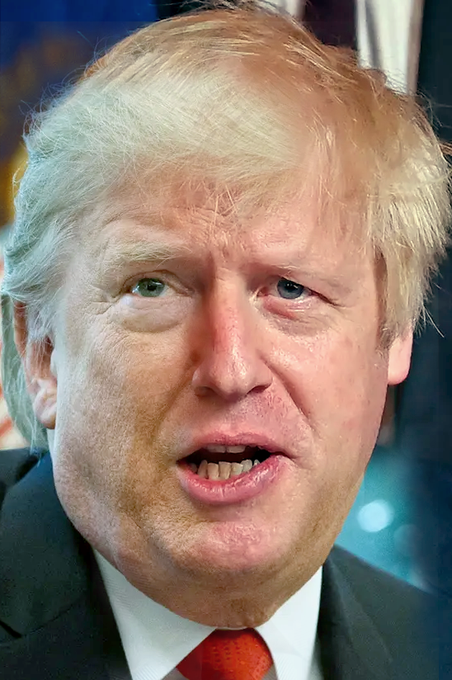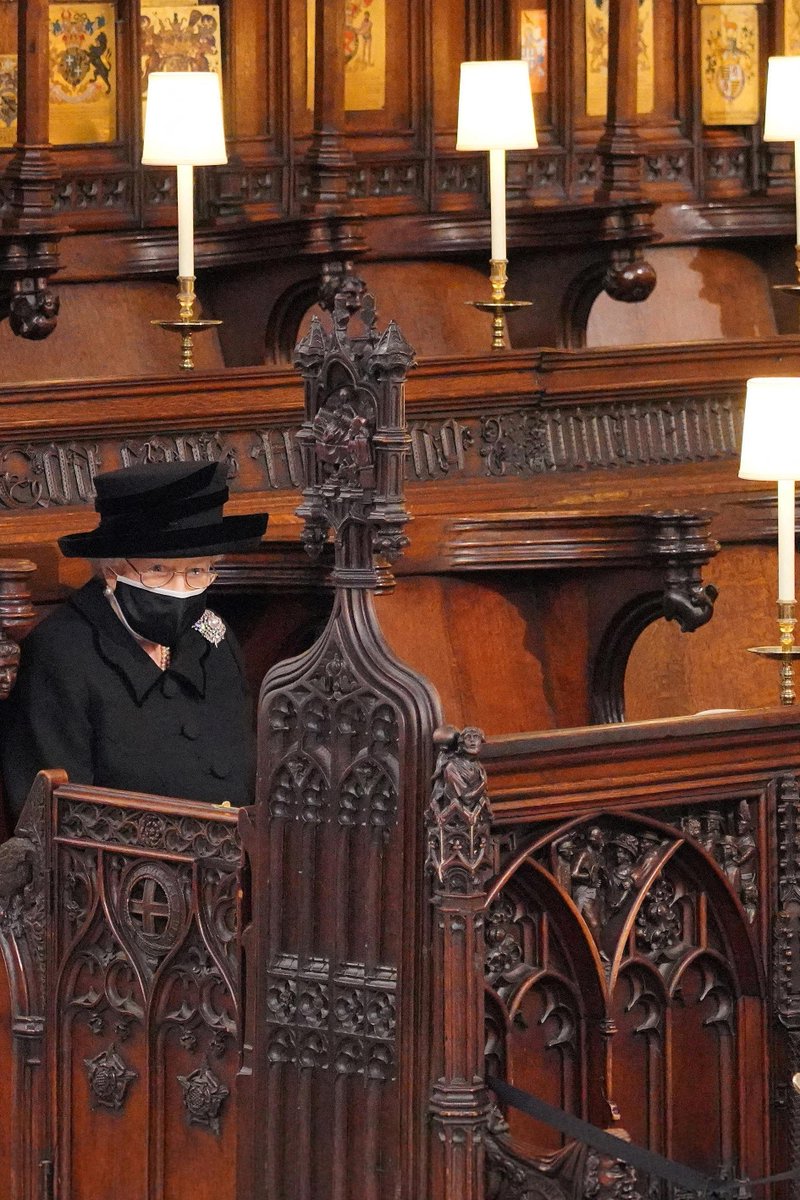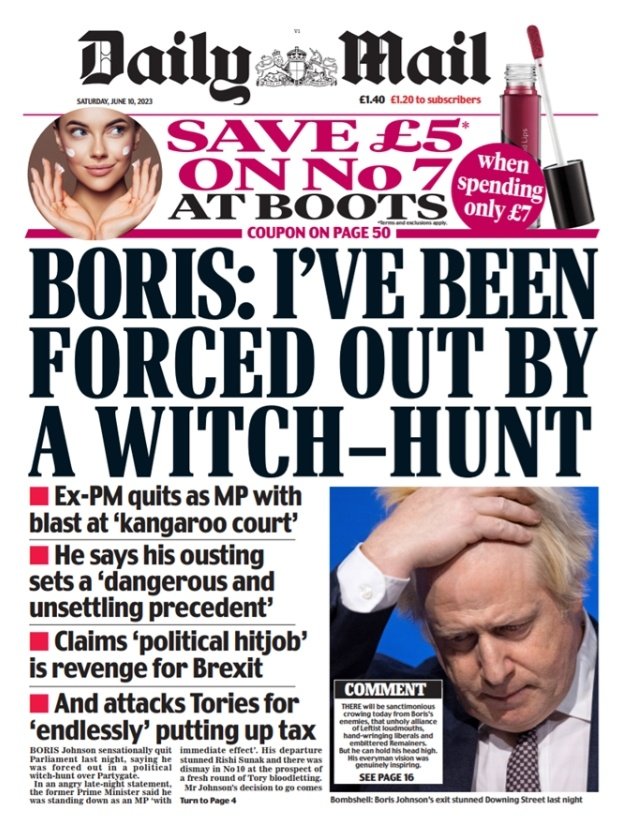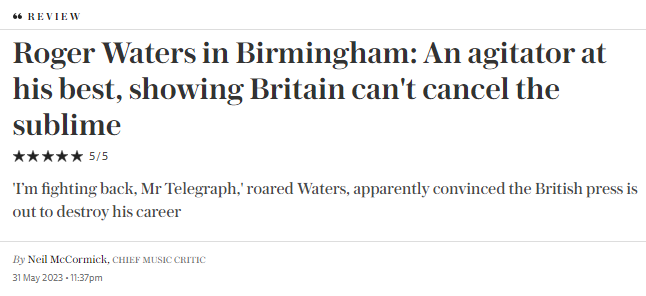#THREAD
Alexander Boris de Pfeffel Johnson was born on 19 June 1964 in New York City, to 23-year-old Stanley Johnson, & 22-year-old Charlotte Fawcett.
They returned to the UK in September 1964, in February 1966 they relocated to Washington, DC, returning to the UK in 1969.

Alexander Boris de Pfeffel Johnson was born on 19 June 1964 in New York City, to 23-year-old Stanley Johnson, & 22-year-old Charlotte Fawcett.
They returned to the UK in September 1964, in February 1966 they relocated to Washington, DC, returning to the UK in 1969.


At Stanley's remote family home in Exmoor, Johnson gained his first experiences of fox hunting. His father was regularly absent, leaving Johnson to be raised largely by his mother, assisted by au pairs. As a child, Johnson was quiet, studious, & deaf.
He and his siblings were encouraged to engage in intellectual activities from a young age, with high achievement being greatly valued; Johnson's earliest recorded ambition was to be "world king".
Having no friends other than their siblings, the children became very close.
Having no friends other than their siblings, the children became very close.
In late 1969, the family moved to Maida Vale in West London.
After Stanley secured employment at the European Commission in April 1973, he moved his family to Uccle, Brussels, where Johnson attended the European School, Brussels, and learnt to speak
French.
After Stanley secured employment at the European Commission in April 1973, he moved his family to Uccle, Brussels, where Johnson attended the European School, Brussels, and learnt to speak
French.
During this time, Charlotte had a nervous breakdown and was hospitalised with clinical depression, after which Johnson and his siblings were sent back to the UK in 1975 to attend Ashdown House, a preparatory boarding school in East Sussex.
While there, the teachers' use of corporal punishment appalled him. Meanwhile, in December 1978 his parents' relationship broke down; they divorced in 1980, and Charlotte moved into a flat in Notting Hill, West London, where her children joined her for much of their time.
Johnson gained a King's Scholarship to study at Eton College. Arriving in the autumn term of 1977, he began using his middle name Boris rather than his first name Alexander, and developed "the eccentric English persona" for which he became famous.
He denounced his Catholic faith and became an Anglican, joining the Church of England. School reports complained about his idleness, complacency and lateness, but he was popular and well known at Eton.
https://twitter.com/LettersOfNote/status/1094970662828101632?s=20
His friends were largely from the very wealthy upper classes; his best friends being Darius Guppy and Charles Spencer, both of whom later accompanied him at the University of Oxford and remained friends into adulthood.
Johnson excelled in English and the Classics, and became secretary of the school debating society and editor of the school newspaper, The Eton College Chronicle.
In late 1981, he became a member of Pop, a small, self-selecting elite & glamorous group of prefects.
In late 1981, he became a member of Pop, a small, self-selecting elite & glamorous group of prefects.
Later in Johnson's career it was a point of rivalry with David Cameron, who had failed to enter Pop. After leaving Eton, Johnson went on a gap year to Australia, where he taught English and Latin at Timbertop, an Outward Bound-inspired independent boarding school.
Johnson won a scholarship to study Literae Humaniores at Balliol College, Oxford, a four-year course in the study of the Classics, ancient languages, literature, history, and philosophy.
Graduating in 1983, he was one of a generation of Oxford undergraduates who were later to dominate British politics and media in the second decade of the 21st century; among them David Cameron, William Hague, Michael Gove, Jeremy Hunt and Nick Boles.
While at Oxford, Johnson participated in college rugby union, playing as a tighthead prop for Balliol College's team for four years.
He joined Bullingdon Club, an exclusive drinking society notorious for acts of vandalism on host premises.
He joined Bullingdon Club, an exclusive drinking society notorious for acts of vandalism on host premises.
Later, a group photograph including himself & Cameron in Bullingdon Club formal dress led to much negative coverage from the press. He began a relationship with Allegra Mostyn-Owen, cover girl for Tatler magazine and daughter of Christie's Education chairman William Mostyn-Owen. 

She was a glamorous and popular student from his own social background, and they became engaged while at university.[74]
In 1984, Johnson was elected secretary of the Oxford Union, and campaigned unsuccessfully for the career-enhancing and important position of Union President.
In 1984, Johnson was elected secretary of the Oxford Union, and campaigned unsuccessfully for the career-enhancing and important position of Union President.
In 1986, Johnson ran successfully for President, but his term was not distinguished or memorable,[80] and questions were raised regarding his competence and seriousness. At graduation, Johnson was awarded an upper second-class degree, unhappy he did not receive a first.
In September 1987, Johnson and Mostyn-Owen were married in West Felton, Shropshire. After a honeymoon in Egypt, they settled in West Kensington, London, where he secured work for a management consultancy company, L.E.K. Consulting; he resigned after a week.
In late 1987, through family connections, he began work as a graduate trainee at Rupert Murdoch's Times. Scandal erupted when Johnson wrote an article for the newspaper, on the archaeological discovery of Edward II's palace.
Johnson had invented a quote for the article which he falsely attributed to the historian Colin Lucas, his godfather. After the editor Charles Wilson learnt of the matter, he dismissed Johnson.
Johnson secured employment on the leader-writing desk of Conrad Black's Telegraph, having met its editor, Max Hastings, while at Oxford. In 2007, Black was convicted of fraud & in 2010 was re-sentenced to 42 months in prison. In 2019, Trump granted him a presidential pardon.
His articles appealed to the newspaper's conservative, middle-class, middle-aged "Middle England" readership, and were known for their distinctive literary style, replete with old-fashioned words and phrases and for regularly referring to the readership as "my friends".
In early 1989, Johnson was appointed to the newspaper's Brussels bureau to report on the European Commission, remaining in the post until 1994.
https://twitter.com/docrussjackson/status/1372489107876757512?s=20
A strong critic of Jacques Delors, he established himself as one of the city's few Eurosceptic journalists. He wrote articles about euromyths eg the EU wanting to ban prawn cocktail crisps & British sausages, & to standardise condom sizes because Italians had smaller penises.
Johnson wrote that Brussels had recruited sniffers to ensure that Euro-manure smells the same, and that the Eurocrats were about to dictate the acceptable curve of bananas and the limits on the power of vacuum cleaners, and to order women to return their old sex toys (all lies).
He wrote that euro notes made people impotent, that euro coins made people sick, and that a plan to blow up the Berlaymont building was in place because asbestos cladding made the building too dangerous to inhabit. (All lies).
Many of his fellow journalists there were critical of his articles, opining they often contained lies designed to discredit the commission.
Europhile Conservative politician Chris Patten later stated at that time Johnson was "one of the greatest exponents of fake journalism".
Europhile Conservative politician Chris Patten later stated at that time Johnson was "one of the greatest exponents of fake journalism".
Johnson was one of the few people in Britain to oppose banning handguns after the Dunblane school massacre, writing in his column "Nanny is confiscating their toys. It is like one of those vast Indian programmes of compulsory vasectomy."
According to one of Johnson's biographers, Sonia Purnell – who was Johnson's Brussels deputy – he helped make Euroscepticism "an attractive and emotionally resonant cause for the Right", whereas it had been associated previously with the Left.
Johnson's articles established him as the favourite journalist of Conservative Prime Minister Margaret Thatcher, but Johnson annoyed her successor, the Europhile John Major, who spent a great deal of time attempting to refute what Johnson said.
Johnson's articles exacerbated tensions between the Conservative Party's Eurosceptic and Europhile factions. As a result, he earned the mistrust of many party members.[109] His writings were also a key influence on the emergence of the eurosceptic UK Independence Party (UKIP).
Conrad Black, then proprietor of The Daily Telegraph, said Johnson "was such an effective correspondent for us in Brussels that he greatly influenced British opinion on this country's relations with Europe".
In February 1990, Johnson's wife Allegra left him; after several attempts at reconciliation, their marriage ended in April 1993.
He then entered a relationship with childhood friend Marina Wheeler, who had moved to Brussels in 1990. They were married in May 1993 in Horsham.
He then entered a relationship with childhood friend Marina Wheeler, who had moved to Brussels in 1990. They were married in May 1993 in Horsham.
Soon after this Marina gave birth to a daughter. Johnson and his new wife settled in Islington, an area known for its association with the left-liberal intelligentsia. Johnson moved in a more liberal direction on issues such as climate change, LGBT rights and race relations.
While in Islington, the couple had three more children, all given the surname Johnson-Wheeler. They were sent to private secondary schools. Johnson wrote a book of verse, Perils of the Pushy Parents – A Cautionary Tale, which was published to largely poor reviews.
Max Hastings promoted him to the position of assistant editor and chief political columnist. Johnson's column received praise for being ideologically eclectic and distinctively written, and earned him a Commentator of the Year Award at the What the Papers Say awards. 

Some critics condemned his writing style as bigotry; in various columns he used the words "piccaninnies" and "watermelon smiles" when referring to Africans, championed European colonialism in Uganda and referred to gay men as "tank-topped bumboys".
Contemplating a political career, in 1993, Johnson outlined his desire to stand as a Conservative candidate to be a Member of the European Parliament (MEP) in the 1994 European Parliament elections.
Andrew Mitchell convinced Major not to veto Johnson's candidacy, but Johnson could not find a constituency. He subsequently turned his attention to obtaining a seat in the UK House of Commons.
After being rejected as Conservative candidate for Holborn and St. Pancras, his party selected him the candidate for Clwyd South in north Wales. Spending six weeks campaigning, he attained 9,091 votes (23%) in the 1997 general election, losing to the Labour candidate.
Scandal erupted in June 1995 when a recording of a 1990 telephone conversation between Johnson and his friend Darius Guppy was made public.
Guppy told him criminal activities were being investigated by NotW journalist Stuart Collier, & he asked Johnson to provide him with Collier's private address, seeking to have the latter beaten to the extent of "a couple of black eyes and a cracked rib or something like that". 

Johnson agreed to supply the information, although he expressed concern that he would be associated with the attack. When the phone conversation was published in 1995, Johnson claimed he had not obliged Guppy's request. Hastings reprimanded Johnson but did not dismiss him.
Johnson was given a regular column in The Spectator, sister publication to The Daily Telegraph, which attracted mixed reviews and was often thought rushed.
In 1999, he was also given a column reviewing new cars in the magazine GQ.
In 1999, he was also given a column reviewing new cars in the magazine GQ.
His behaviour regularly disgruntled his editors; the large number of parking fines that Johnson acquired while testing cars frustrated GQ staff.
https://twitter.com/docrussjackson/status/1372489173333073920?s=20
At The Daily Telegraph and The Spectator, he was consistently late delivering his copy, forcing many staff to stay late to accommodate him; some related that if they published without his work included, he would get angry and shout at them with expletives.
Johnson's appearance on an April 1998 episode of the BBC's Have I Got News for You brought him national fame.
He was invited back on. including as a guest presenter; for his 2003 appearance, Johnson received a nomination for the BAFTA Award for Best Entertainment Performance.
He was invited back on. including as a guest presenter; for his 2003 appearance, Johnson received a nomination for the BAFTA Award for Best Entertainment Performance.
After these appearances, he came to be recognised on the street by the public, and was invited to appear on other television shows, such as Top Gear, Parkinson, Breakfast with Frost, and the political show Question Time.
In July 1999, Conrad Black offered Johnson the editorship of The Spectator on the condition he abandon his parliamentary aspirations; Johnson agreed. While retaining The Spectator's traditional right-wing bent, Johnson welcomed contributions from leftist writers and cartoonists.
Under Johnson's editorship, the magazine's circulation grew & began to turn a profit. His editorship also drew criticism; some opined that under him The Spectator avoided serious issues, & colleagues became annoyed that he was often absent from the office, meetings, & events.
He gained a reputation as a poor political pundit because of incorrect political predictions made in the magazine. His father-in-law Charles Wheeler and others strongly criticised him for allowing Spectator columnist Taki to publish racist & antisemitic language in the magazine.
Journalist Charlotte Edwardes wrote in The Times in 2019 alleging that Johnson had squeezed her thigh at a private lunch in the offices of the Spectator in 1999 and that another woman had told her he had done the same to her. A Downing Street spokesman denied the allegation.
In 2004, Johnson published an editorial in The Spectator after the murder of Ken Bigley suggesting that Liverpudlians were wallowing in their victim status and also "hooked on grief" over the Hillsborough disaster, which Johnson misleadingly partly blamed on "drunken fans".
In an appendix added to a later edition of his 2005 book about the Roman empire, The Dream of Rome, Tell MAMA and the Muslim Council of Britain strongly criticised Johnson for arguing Islam has caused the Muslim world to be "literally centuries behind" the West.
Following Michael Heseltine's retirement, Johnson decided to stand as Conservative candidate for Henley, a Conservative safe seat. The local Conservative branch selected him although it was split over Johnson's candidacy.
Some thought him amusing and charming while others disliked his flippant attitude and lack of knowledge of the local area. Boosted by his television fame, Johnson won the seat in the 2001 general election with a majority of 8,500.
https://twitter.com/docrussjackson/status/1372489162318876672?s=20
In his first four years as MP, he attended just over half of the Commons votes; in his second term, this declined to 45 per cent. He usually supported the Conservative party line but rebelled against it five times in this period.
In free votes, he generally demonstrated a more socially liberal attitude than many colleagues, but in 2001, Johnson had spoken out against plans to repeal Section 28, saying it was "Labour's appalling agenda, encouraging the teaching of homosexuality in schools".
After initially stating he would not, he voted in support of the government's plans to join the US in the 2003 invasion of Iraq. In August 2004, he backed unsuccessful impeachment procedures against Prime Minister Tony Blair for "high crimes and misdemeanours" regarding the war.
In December 2006, despite having voted for it, Johnson described the invasion as "a colossal mistake".
Although labelling Johnson "ineffably duplicitous" for breaking his promise not to become an MP, Black kept him on as he "helped promote the magazine & raise its circulation".
Although labelling Johnson "ineffably duplicitous" for breaking his promise not to become an MP, Black kept him on as he "helped promote the magazine & raise its circulation".
Johnson remained editor of The Spectator, also writing columns for The Daily Telegraph & GQ, and making TV appearances.
In 2004, HarperCollins published his first novel: Seventy-Two Virgins.
In 2004, HarperCollins published his first novel: Seventy-Two Virgins.
https://twitter.com/docrussjackson/status/1614580773121671169?s=20
Following William Hague's resignation as Conservative leader, Johnson backed Kenneth Clarke, regarding Clarke as the only candidate capable of winning a general election; the party elected Iain Duncan Smith.
Johnson had a strained relationship with IDS, & The Spectator became critical of his party leadership.
IDS was removed in November 2003 & replaced by Michael Howard, who deemed Johnson to be the most popular Tory with the electorate so appointed him vice-chairman of the party.
IDS was removed in November 2003 & replaced by Michael Howard, who deemed Johnson to be the most popular Tory with the electorate so appointed him vice-chairman of the party.
In October, Howard ordered Johnson to apologise publicly for publishing a Spectator article – written by Simon Heffer – which said the crowds at the Hillsborough disaster had contributed towards the incident & Liverpudlians had a predilection for reliance on the welfare state.
In November 2004, tabloids revealed that since 2000 Johnson had been having an affair with Spectator columnist Petronella Wyatt, resulting in two terminated pregnancies. Johnson initially denied it, calling the claims "an inverted pyramid of piffle".
After the allegations were proven, Howard asked Johnson to resign as vice-chairman and shadow arts minister for publicly lying; when Johnson refused, Howard dismissed him from those positions.
In July 2005, Who's the Daddy?, a play by The Spectator's theatre critics Toby Young and Lloyd Evans being performed at Islington's King's Head Theatre, satirised the scandal.
https://twitter.com/docrussjackson/status/1532334430051778560?s=20
In the 2005 general election, Johnson was re-elected MP for Henley, increasing his majority to 12,793.
Labour won the election and Howard stood down as Conservative leader; Johnson backed David Cameron as his successor.
Labour won the election and Howard stood down as Conservative leader; Johnson backed David Cameron as his successor.
After Cameron was elected, he appointed Johnson as the shadow higher education minister, acknowledging his popularity among students.
Interested in streamlining university funding, Johnson supported Labour's proposed top-up fees.
Interested in streamlining university funding, Johnson supported Labour's proposed top-up fees.
In April 2006, the News of the World alleged that Johnson was having an affair with the journalist Anna Fazackerley; the pair did not comment, and shortly afterwards Johnson began employing Fazackerley.
In September 2006, Papua New Guinea's High Commission protested after he compared the Conservatives' frequently changing leadership to cannibalism in Papua New Guinea.
In 2005, The Spectator's new chief executive, Andrew Neil, dismissed Johnson as editor.
In 2005, The Spectator's new chief executive, Andrew Neil, dismissed Johnson as editor.
To make up for this loss of income, Johnson negotiated with The Daily Telegraph to raise his annual fee from £200,000 to £250,000, averaging at £5,000 per column, each of which took up around 90 minutes. In 2007, he earned £540,000, making him the UK's third-highest-earning MP. 

In July 2007, Johnson announced his candidacy to be the Conservative candidate for Mayor of London in the 2008 mayoral election. In September, he was selected after gaining 79 per cent of the vote in a public London-wide primary.
Targeting the Conservative-leaning suburbs of outer London, Johnson's campaign capitalised on perceptions that the Labour Mayoralty had neglected them in favour of inner London. His campaign emphasised his popularity, even among those who opposed his policies.
A common attitude among voters was: "I'm voting for Boris because he is a laugh." Livingstone's campaign portrayed Johnson as an out-of-touch toff & bigot, citing his racist & homophobic language. Johnson lied that the quotes had been taken out of context & were meant as satire.
In the election, Johnson received 43% and Livingstone 37% of first-preference votes; when second-preference votes were added, Johnson proved victorious with 53% to Livingstone's 47%.
Johnson then announced his resignation as MP for Henley.
Johnson then announced his resignation as MP for Henley.
• • •
Missing some Tweet in this thread? You can try to
force a refresh

 Read on Twitter
Read on Twitter


















